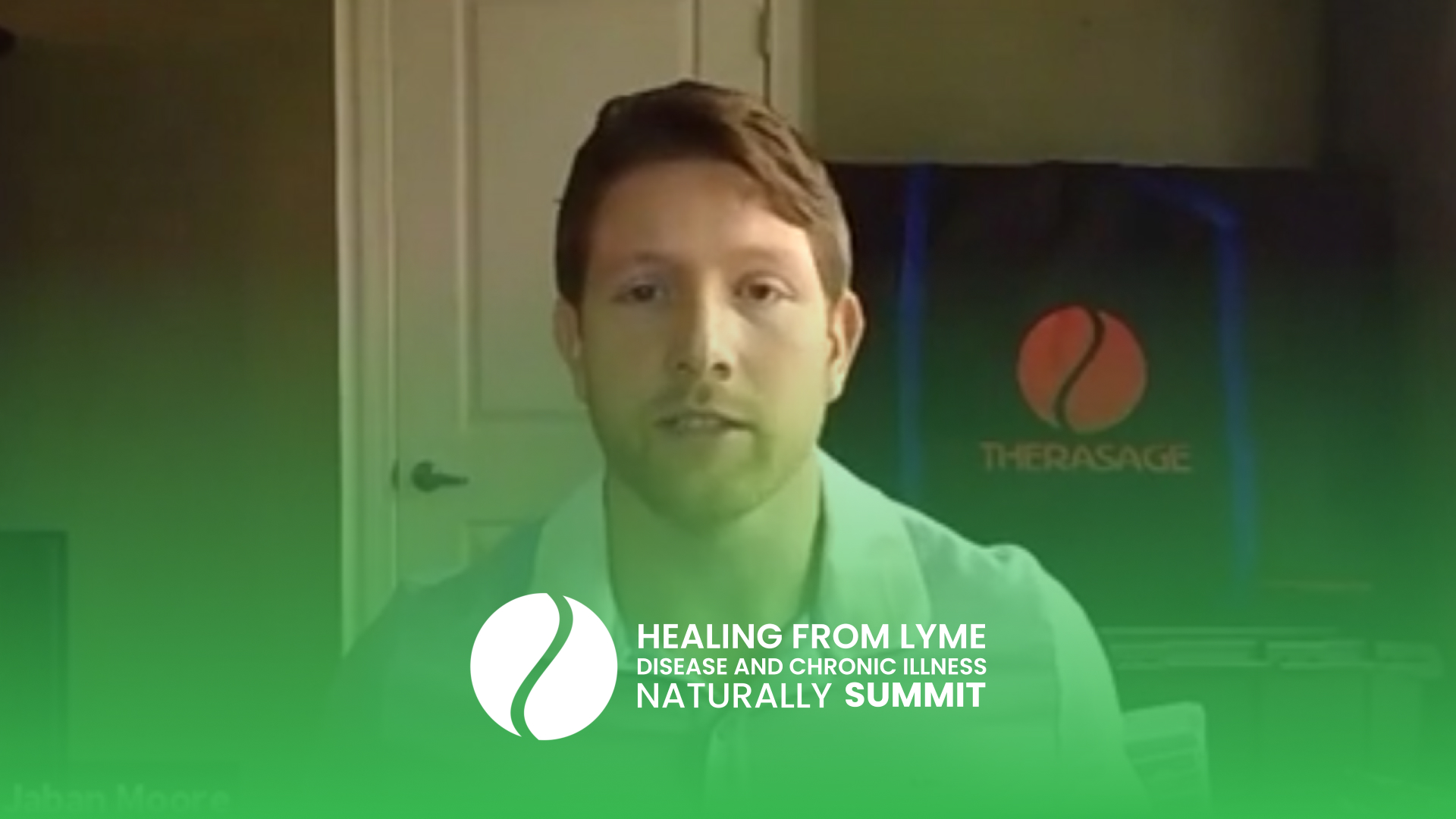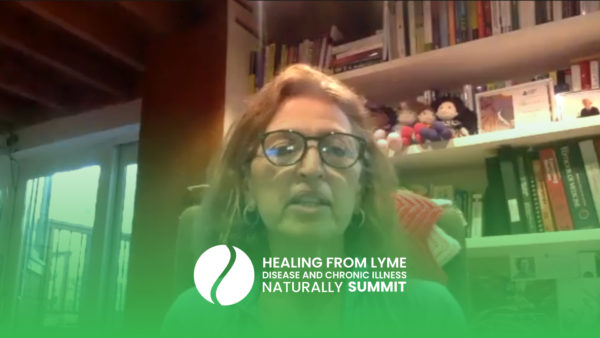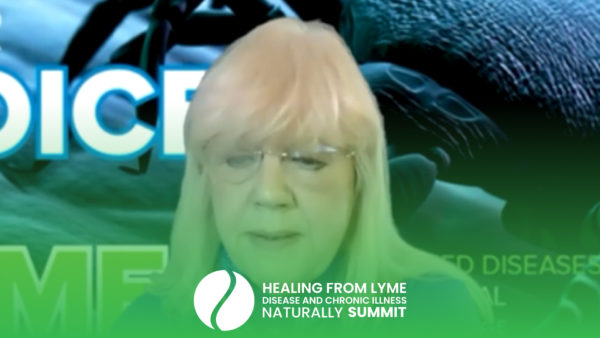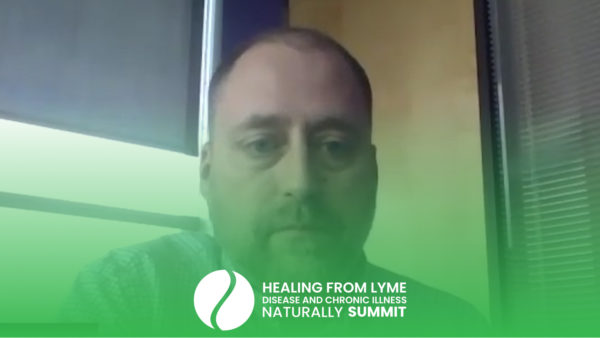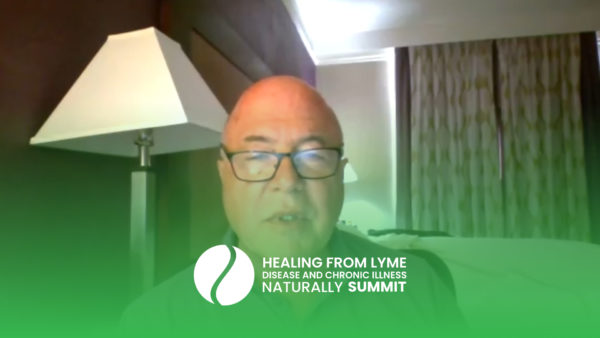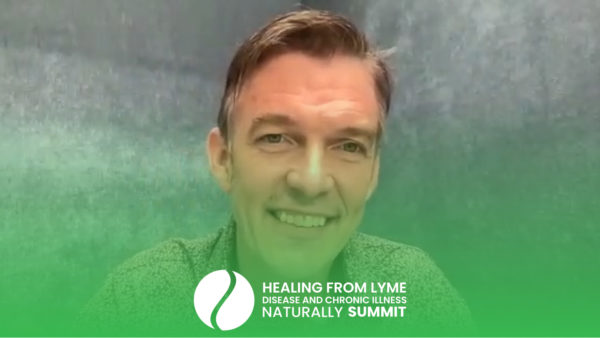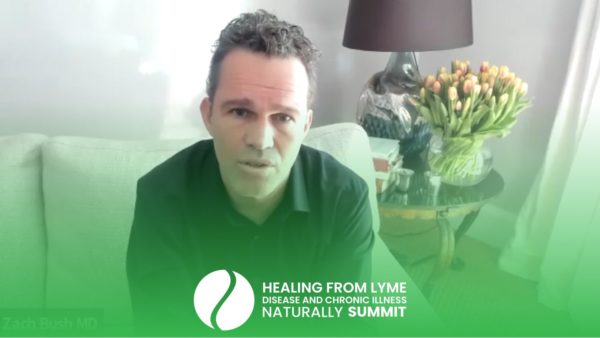Join the discussion below
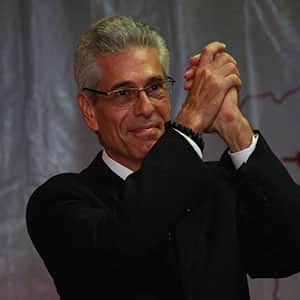
Rob Besner, PSc.D, Co-Founder and Chief Science Officer of Therasage, has always been an advocate of natural health and wellness. Graduating from Boston University in Pre-Med, Engineering, Psychology and Business, he continued onto post graduate work at Case Western Medical School and Holistic Medicine After many years of illness, Mr.... Read More

Dr. Jaban Moore is a DC located in Kansas City, MO who works virtually with clients all around the world. At age 25, he went from being an award-winning top athlete in college to feeling like he couldn’t even get out of bed. He went to a lot of appointments... Read More
Finding the right steps and what to address first Co-infections, Toxins, and Trauma.
Related Topics
Chronic IllnessRobby Besner PSc.D.
Hey, everybody. Welcome back to another episode of the Healthy Hotline. And we’re sponsored by Therasage. So this is part of our Lyme Series and today we just have our all-stars, the only way that I can describe Dr. Jaban Moore. He’s got a presence on Instagram. He’s got a great website and he has a Facebook presence. And it’s so simple. You just dial in Dr. Jaban, J-A-B-A-N, Moore, M-O-O-R-E. So Jaban, welcome to the Healthy Hotline. I know you’ve had your own battle with Lyme and journey. I read part of your background. It’s kind of really interesting to me how you got inspired basically as a child, watching your mom and her health challenges, then wanting to help her. And I think that inspired was sort of an underpinning why you went to GC School, got a health degree, but you didn’t stop there.
Then in the middle of all that, you had your own challenge and then you kind of found your way, cloud your way back there, which gave you an acute understanding of what Lyme patient goes through. And I know you see a lot of Lyme in your practice. But for the most part, we’re here today just to get some pearls of wisdom from you from your own journey. This is just the beginning, by the way. And Dr. Jaban Moore is truly an all-star. He’s amazing. And so I would like to go into all the accolades. I mean, your functional medicine. You’re doing masterwork in blood chemistry. You’re multi-faceted, and you’re in the kinds of approaches that you’ve taken. You really work at cellular healing finding the root cause, creating a healthy platform. These are all the like-minded kinds of modalities and approaches that we look at at Therasage. So I’m sure that’s probably why I find you so interesting and I’m really attracted to you on your energy and the things that you’re doing. So Jaban, welcome to the Healthy Hotline. Jaban is in the house. Give us a shout out and tell us a little bit of backdrop if you want. And then let’s move forward into talking about how we can help the well-deserved, well-needed, under-served mind community.
Jaban Moore, M.D.
Yeah, I’m excited to be on here. I love to help people as much as I can. I’m constantly putting in through all out there ’cause what I went through my journey there weren’t a lot of answers, and that’s the sad part about chronic illness, whether it’s Lyme or otherwise, there aren’t a lot of answers. There’s not enough people shouting from the mountain top saying, “This is the path you need to go on.” My journey, the long story short yeah, my mom had chronic illness.
She had diabetes and cholesterol issues and everything under the sun, from depression to weakness and was unable to work. And I watched that growing up and it led me down this path of, you’ve got to take your health by your own hands. And you’ve got to be your own advocate ’cause no one else is gonna do that for you except maybe your mom. But when I was growing up, it was mom that was sick, and then I ended up at 25 after a college career, and I did pretty good in college. I was a multiple time, All American in shot put, and then I lost some weight and I was getting fit and healthy. And my health crashed at what should have been healthiest point of my entire life. I was fit and thin and eating well and resting and not training too hard.
And the bottom fell out. I ended up with a Tegan pain and erectile dysfunction, and I went to the doctors and they said, “There’s a pill for that, “and that just happens.” And I just, I sat back and I was like, “That just happens, you have no answers, “you’re not even gonna investigate? “That’s just it, just happens to some people.” And then I went to functional medicine doctors and they said, “Well, here’s nitric oxide. And I was like, well, that’s no different than there’s a pill for that. There’s a powder for that. There’s a supplement for that, it’s more natural.
Maybe it won’t hurt me as much, but why is it happening? What’s the root cause of it, what the physiological change that’s causing this problem? And that’s what’s driven me today to where I am. It’s because I don’t accept anything as that just is, it’s always like that little kid. You need to be three years old again, why, why, why? And you need to be annoying to every doctor, every person around you, why? Because that’s the only way you’re gonna figure out how to get well, and that’s the biggest tip I can give anybody out there is ask why, because that why is gonna eventually gonna lead you to an answer, and that answer is gonna lead you to getting well because in the chronic health, I just did an interview with one of my clients. And honestly, I didn’t even remember, ’cause I’ve known her since 2015, but she saw 39 doctors before me.
Robby Besner PSc.D.
Wow.
Jaban Moore, M.D.
She dealt with cancer and pain to the point where she had to sell her business and brain fog and fatigue. And she just was a shell of her own self. And she just kept saying, “Why? “Why am I like this, and not giving up?” Even though she literally contemplated and had a plan of how she was gonna take her own life.
Robby Besner PSc.D.
Wow.
Jaban Moore, M.D.
Which I personally never had that plan, but I was definitely headed toward that depression state and asking why. You said quick-jump through what I went through and that’s the quick of it. I ended up driving to Wisconsin to find an answer after I don’t know how many functional docs after someone finally said, “We looked at the Lyme and I found doctor in Wisconsin. And then he said, “Well, here’s your why. “You have Lyme, Babesia, Bartonella. “You have some fungus, your mitochondria is wrecked “so you’re not producing any energy. “And if we can get some of that turned around “you’ll feel better.” And I was like, “okay, so that’s a reason. “There’s an infection, “that’s breaking down my ability to make energy “that’s leading to the way I feel, got it. “What do I do, doc?” So let’s dive in there.
Robby Besner PSc.D.
Interesting.
Jaban Moore, M.D.
Let’s dive in there, ’cause that is what it is for every single person out there is what infection, toxin, or trauma has broken your system down, that has led to the place that you are. Now it can be different for everyone, that combination. But it is usually a combination of those things.
Robby Besner PSc.D.
Amazing, that’s such a common, all the variables and even in your own journey, your symptoms, everybody out there that’s listening today can relate to that. And I think that that’s so important because you personalized it. And the depression and the emotional piece is so important also because many times 39 doctors, my daughters saw at least 25 that I know. And what we found after her 15 year battle with Lyme, was that basically she was zero-sum in terms of her physiology, but her emotional state and her psychological state, every time she would get a little better and then she would relapse again, her emotional and her psychology just kept on making the lows. And so when you talk about suicidal, you talk about deep depression is so easy to get there especially with a chronic challenge. So, all right, let’s unpack this a little more on, Jaban.
Jaban Moore, M.D.
Yeah, so. And I’m just gonna talk about that client. She went from, at the bottom ready to just be done. I mean, the plan was set and somebody said, “Go see this guy.” And I was at my infancy of doctor, right? I was a couple of years in, and Lyme is not something that you just get taught in school. Only reason I knew about it was I had the personal journey. And when she walked in, and I do a combination of things. We ran labs, we did a symptom assessment. We did a not only symptom assessment, but a chart to where we looked through all of the different organ systems and how they were working. To understand, do we have a thyroid dysfunction which she had lost her thyroid.
Do we have hormones that are dysfunctioning? Do we have digestive tract that’s leaky, or that maybe has parasites or clostridia, fungus and all the other systems of the body, which I’m not gonna name everyone, ’cause there’s a bunch. And then we did some muscle testing. We did some acupuncture assessment testing. And after going through all of these pieces, we took all that pile of information. I said, okay, look, based off all this information, we knew you had Lyme, Babesia, Bartonella. You had lab testing for that. But I think you have parasites which are really difficult to test for stool samples. In my opinion, just don’t get the job done. So after doing a assessment of parasite assessment form that I have, she was very high on that. So we said, okay, we’re gonna add that to the list. At the time, mold was not a part of her journey, toxicities like heavy metal work. So I go, okay, this is the list of things. At the top of her note, it was just a long list. These are the things that I know we’re gonna have to at least pay attention to. I may not have to address every one because as you elevate your health, your body’s gonna knock out some of those on its own.
Robby Besner PSc.D.
Exactly.
Jaban Moore, M.D.
Typically, candida yeast is one of those things the body will knock out on its own when you go after the rest of it, that’s just my opinion on that too, or at least from what I’ve seen in clinical practice of thousands of clients. And we just started knocking them out and we would do one to the next to the next. And it’s different for every person ’cause I can tell you this, this is a pearl that makes me different, or at least clients have told me, make me different as I say this. You’re like an onion and you have to peel that layer of off one piece at a time. You can’t just cut it in half and go to the center and pull out the root of it, which I wish you could. That’s a concept that I’m aware of. And I would love to be able to do that, but the body doesn’t work that way.
Because you can put an IVN and you can key late the heck out of a body and then have barely any metal come out. And if that person’s layer of the onion on the outside that you tried to skip was some sort of emotional trauma or Lyme or a parasite, and you didn’t hit that layer, little, tiny bits of metal come out. But then if you peel that layer off and you throw that down, and you say, okay, that was that PTSD. And then you said, okay, here’s the next layer, this is heavy metals. They’ll just start coming out on their own. And then you have to go, okay here’s some metal protocol to catch that as it’s coming out, which if you’re with a doc that has been working on this, they’re gonna know that these pieces are gonna come.
They’re gonna tell you, Hey, at some point you’re gonna get a little metal taste in your mouth. Your stool is gonna be a little bit of a burn, and you’re gonna need to start taking that binder because that burning stool, that burning itching kingly hand it can be mold, it can be metal, it can be Lyme, but after this step, if you start just flushing all these toxicities out, here’s the next piece that we’re gonna have.
I tell people all the time, okay, we’re gonna do a parasite, parasite, bacteria, and then at some point around there, it’s gonna come flooding out. But it’s because you are unraveling the onion. You’re building the strength of the body, which is some of the tools that we’re gonna dive into. And as that strength builds, your body starts helping you. And that’s the point, that relapse. You said your daughter’s mental state or my client’s mental state with every doctor, with every relapse, got a little worse. Is because it’s fear that you’re not gonna find, you’re not gonna get over the hump. And that fear is real. And it’s not something to be ashamed of, but it is something to work on.
Robby Besner PSc.D.
Yeah, you also lose hope. Like it’s the fear and you’ve exhausted most of your money. You’re trying your best to find a doctor that’ll give you a clue. And so you’re trying to navigate through the sea of practitioners that call themselves “Lyme literate.” That’s why I love you and what you’re talking about, because you’ve got this personal journey and you found the light at the end of the tunnel. And you’re articulating is this the fabric of everybody’s tapestry in a sense, and it’s different that everybody presents differently. And the puzzles, the pieces of the puzzles will set up in a particular order. And so for you having that insight is so important. And for everybody out there that’s listening that may have just tuned in, if you don’t find a practitioner that has empathy for the things that you’re talking about, your symptoms and the way you feel, find another practitioner, because they’re not the right one for you. So keep going Jaban, you’re on a roll here. I’m sorry, I interrupted.
Jaban Moore, M.D.
No, it’s okay. I wanna tap into one thing you said real quick. What is Lyme literate? Because I bumped into too many guys that are “Lyme literate.” Like what is that?
Robby Besner PSc.D.
Exactly?
Jaban Moore, M.D.
It’s the concept that you acknowledge that there is a bacterial infection that causes symptoms because I’m pretty sure that’s the definition of it. It doesn’t mean that you’ve been through it, which you don’t have to go through it. I’ve got friends out there that are great practitioners that have not specifically been through Lyme themselves, but they acknowledge it and then it’s become a passion and they help it. But Lyme literate is you acknowledge it’s there, but you don’t necessarily acknowledge that it takes time. It can wreak havoc on the body that it is in combination with so many co-infections, toxins and traumas because too many Lyme literate doctors are okay, well you have Lyme, here’s this protocol, whether it’s all the colloidal silver, or all the antibiotic, and just pound, pound, pound. And why aren’t you better? I didn’t do it. No, that’s not Lyme literate. That’s Lyme accepting, maybe.
Robby Besner PSc.D.
Right, right.
Jaban Moore, M.D.
No, I got to get off that soapbox, sorry. It’s just, that was one of those
Robby Besner PSc.D.
No, no, I get it. And sometimes Lyme literate means that they took a long weekend course somewhere so that they can say that they are, but that’s very different than having the experience and also having real results. And I know after meeting with you, like part of your rudimentary doctrines, isn’t just to know that a product, a device or a protocol. You need to test it, you need to see for yourself with your own eyes, that it actually works and that it’s vetted. And then you apply it. Many times you apply it to yourself before you even bring it out to your clinic. But the idea that you go through that process is so important for people to understand how authentic you are and how real it is in terms of your disciplines and what you go through before you leave and introduce the concept to your patients. Real important.
Jaban Moore, M.D.
I don’t think anyone should be telling somebody to do things that they haven’t at least done or used themselves. I mean, you look right behind me and I’ve got a sauna here that I personally have in my house, and it’s honestly really easy to store away. But I just moved, so I got like a stack of stuff I’m still finding places for, right. But that one I got pulled in and out, ’cause I’m using it. And the girlfriend doesn’t always love big, huge black boxes everywhere. So you could probably attest to the life going, “Um, you got way too much technology laying around. ‘You got way too many things. “Where are we gonna put these?” And I’m like, “It keeps us healthy.”
Robby Besner PSc.D.
That’s it.
Jaban Moore, M.D.
Well, and we’re on the run through to just recovery. And I was talking about the onion and peeling it, and we peel back the layers and that’s how you get well. But as you peel the layers back, there’s steps to that. So there’s, yes, you have to identify the steps and then you have to identify what order the steps go in. But then even as you go through that detox, immune function takes energy. Just remembering to take all your pills in the day for someone that’s chronically ill is a task. It’s not easy to remember to take three doses of pills when your brain is completely dysfunctional. I joke with clients everyday. I’m like, I know you’re not gonna remember anything we say at the end of this appointment.
So let me send you a quick email, what I want you to be doing. And it’s not to be rude, it’s just because it’s like, it’s an acknowledgement that you’re going through something, and I’m gonna try and do my best to support you through this process. So what tools can we use to help you through that? So my first parasite protocol for somebody, let’s say that step one, after we’ve opened up detox and drainage by supporting liver, lymph, gallbladder, and colon, making sure you go to the bathroom every day. So that’s really step one. And then we go, okay, so now we need to get after parasites. You detox well, do you react to supplements? That’s my biggest question to people. Do you react when you do a protocol, have you ever done one before? And they’re like, “Oh, yeah, “I went to so-and-so’s clinic “and he gave me Wormwood, and I crashed and burned.” Oh, okay.
So in that case, let’s do a sensitive protocol and let’s also add tools to your body to build its energy, so you can detox, so you can have an immune response without completely wiping you out. ‘Cause you got three kids at home and you don’t have time to be bedridden, right? So you have a sauna because if you do, you can get in the sauna a couple of times a week, which you’re gonna need to take some minerals for that and some binders with it. But that itself is gonna help your detox pathways, ’cause you’re gonna sweat out the toxins. You’re gonna get stuff moving out of your body. The red light is gonna help your energy system.
So this sauna specifically with Therasage has red lights built into it. So now you’re getting red light therapy and you’re getting a sauna at the same time. Now everybody listening, be careful. That’s a lot of good, and a lot of good can do a lot of function, and anything that has a positive effect needs to be managed. So start with a couple of minutes first and build up everybody. I always say stuff like that. I’m like, if you don’t get any response from something you’re doing, is it doing anything? So there’s always that. Anything with a therapeutic effect can have some sort of toxic effect at some level, if your body’s not ready for it. And although I don’t know if the sauna is toxic, your body may have a lot of toxins that are moving out if you do two hours your first day.
Robby Besner PSc.D.
You know, that’s so true because especially when we’re doing our coaching, people that have chronic challenges, they’re so sick of being sick, that when they get a little result, they wind up diving into the deep end of the pool before they really know how to swim. And so going low and slow is such an important pearl for all of you to understand. If you’re younger and you may have gotten somehow affected by Lyme in your early ages, because your immune system was strong, you may not have actually become symptomatic for 10 or 15 years later. But that toxic level, all those poisons and stuff your body has been building up to the point where you’re getting, you become symptomatic.
So now that’s sort of what I call climbing the toxic mountain. It’s hard to fall up a mountain when you’re climbing, but it’s really easy to fall down a mountain if you take too many big, giant steps. So low and slow is some really great advice. And also having a realistic timeline of when you’re gonna start to feel better so that you don’t have unrealistic expectations and that you lose it, you got to stay with it. So I’m sorry if I keep jumping in, but I love the train of thought you’re on, Jaban.
Jaban Moore, M.D.
Yeah, I mean low or slow, or the concept of it’s a marathon, not a sprint for so many people. And you said, a realistic timeline, right? So I tell clients all the time, it’s 18 months to two years before into recovery. That doesn’t mean you haven’t seen progress. You for sure seen your progress before that period of time, but that’s before I go, okay, we’re done going all at it. We’re done with addressing things. We’re likely to the point where now it’s like, okay, I’ll see you in six months. We’ll do another quick protocol just to keep you well, because we live in a super toxic environment. It’s a toxic soup of things that we’re living in from the food to the water, to the air. I mean, I’m drinking the still water here. Right now we’ve got air filters in my house. We use ozone to keep the toxins down.
We do red light to get our photonic energy ’cause I’m not in the sun nearly enough ’cause I probably work too much. I sauna to flush the toxins deeply and I sweat in there, but then I sweat in the gym too. Right? So those are all things that keep me well, I want you all well. But that low and slow building up at a consistent pace, but knowing you’re gonna go like this as you’re climbing that mountain, because there’s gonna be times where we have to push a little faster and you’re gonna get a little out of breath if you’re running up a mountain or you’re gonna get a little toxic, a little toxic, not tremendously toxic, as you’re going up that mountain. So now it’s like no one sprints up a mountain that’s a normal person, right? If you’re sick, you’re not sprinting up a mountain.
You’re walking, there’s times you’re like, let me take a little breather and you need to do that too, you need to look at the top and go, okay, I have an estimated timeframe and idea, but you are making progress, right? So I tell people we’re gonna go three months and then we’re gonna take a week off and you should feel some better. You’re not gonna be better. And then we’re gonna go back into protocols and you’re gonna feel some worse after that week off. And then we’re gonna three more months and then you’re gonna feel a bit better. And then we’re gonna three more months, you’re gonna feel quite a bit better. And maybe after a year, then we’re gonna be like, okay, you feel pretty human again. You feel well again. I got a guy who came in after going to some of those big box plans, the big, huge name clinics that I’m not gonna mention and being told, okay, we got to burn out your heart. You’re on morphine, you’re on Lyrica. And you’re gonna be that way maybe for the rest of your life.
Robby Besner PSc.D.
Wow.
Jaban Moore, M.D.
my house when he was 23
Robby Besner PSc.D.
Oh my God.
Jaban Moore, M.D.
20 when he came, he’s 23 now. And now he’s like, my brain is functioning. I’m working, I’m going to school at the same time. He’s coming in in shadow of me thinking about, do I want to come and do this for a living? Although I think he’s gonna end up doing some sort of finance ’cause his brain is just numbers like crazy. Now when he came in to me, he had quit school because he couldn’t think.
Robby Besner PSc.D.
Yeah, very common.
Jaban Moore, M.D.
And just as we went through it, there’s ups, there’s downs. And this guy just kept holding on, but he told me like, “You’re the last one. “I’ve been to 25 doctors.” And I don’t love ever hearing I’m the last one. But we had success and it’s because he knew, because we had that communication is going to take time. And he did everything. He did coffee enemas, he got a sauna, and he swears by the sauna. I mean, like it is his ride or die. If there’s one thing he can take with him is he’s gonna carry that thing on vacation. But now where we are, and I love saying this, we’re to a point where he knows that his body is not a body to which you can just stop detoxing.
So we live in this toxic environment. So I told him an HM-ET a day, which is a heavy metal binder, keeps the doctor away. It’s no longer an apple. Unfortunately it’s not just the nutrients we get. And it’s the toxins that we get out in today’s world. It’s the mitochondrial support that we give him, the MitoATP to keep his mitochondria of that, regulates your muses to myself. As I tie everything together here, it’s, if we can keep our mitochondria supported, which control energy and immune, if your cellular energy is up, your cellular energy will keep your body rebuilding, detoxing and immune functioning.
So if you can take everything down from all this complicated stuff, all these labs, and if I can just look at yourself with your energy, and if we can find that your cellular energy is great, it’s hard to get you sick. It’s hard to get you injured because if your cellular energy is up, your body is resilient. But what breaks that down? If I’m looking at an organic acid test and I’m looking at your Krebs cycle, if I’m looking at your fatty acid oxidation, if I’m looking at a hair tissue mineral test, I’m looking at your calcium, magnesium, sodium, and potassium. And sodium potassium are huge there. If those are low, then your ability to get things in and out of your cell are low, right? So if I’m looking at those tests and those things are dysfunctional, your ability to heal and to stay well to mount an immune reaction is trashed and mold does that exquisitely.
And one of the key things to Lyme is never stop looking under every stone until you are well, because so many people with Lyme that I see that have seen 20 doctors, didn’t realize that they either had radioactive elements or they had mold under the hood, and they’ve hit every herbal out there for Lyme, every medication for bacteria, for parasites, but they haven’t done those two things. And that’s why I am constantly in a research mode of what am I missing. Because every time I find the next thing, I get a client that gets well from that, then I get a client that I do everything I have ever done, and they don’t get well, I’m just like, ah, okay. What’s the next thing?
Robby Besner PSc.D.
Cool. Yeah, that unwavering ability you have to stay focused and the thirst for you to understand all this underlying causes and the root causes and to dissect them in a sense, and then stack them is so unique among all the practitioners that we know. And over the years we’ve had many interactions. I would just wanna comment on one thing that we’ve helped that’s helped us, that you speak about the peeling of the onion and the process by which the body starts to heal. And then when you do it and you kind of figure it out and you get a foundational piece and you start to build a strong foundation, the body has memory, muscles have memory, cells have memory. And so it starts to tune up. It’s almost like a symphony tuning up. And at some point it becomes so exponential.
So in the beginning, it may seem slow because to build a strong foundation, you have to do it solidly. And what we do oftentimes if the patients are good about it, we ask them to start to journal. And I’ll give you a quick example. For Julia, she experienced body pain. And so at one point, I said, I can’t relate to you when you say you have pain, give me a number, give me a number on it. She said, well, if I said to her, if it’s one through 10, 10 being the most amount of pain, how are you presenting today? I’m number eight or number nine. And what we noticed so once we started doing protocols in the beginning of the month, she was an eight, nine and eight, nine. But by the end of the month, she was a five, six. Now she went to her normal practitioner and the practitioner looks at his little checklist and he says, “Julia, are you in pain?” She’d say, “Yes, the answer’s yes.” But she’s not a nine, she’s a six. Now going from a nine to a six may seem, not either subtle or not incremental enough, but it gives you a feeling of first, hope and second, that you’re moving in the right direction with whatever protocols you’re doing. And it just takes time like you say. So we use journaling very effectively to try to allow the patient to understand the subtle changes that are happening while that orchestra is tuning up.
Jaban Moore, M.D.
Oh, yeah. If you looked at my notes, it would look a lot like what you just said. My first visit with clients, yeah, I take history, and I do all the other things we talked about, but I get this list and I’m like, give me 10 things that you’re dealing with, brain fog, depression, anxiety. 10 is that you got to go to the hospital, you broke your arm kind of bad. And zero is none at all for the whole thing, so we can keep it simple. And I go, rate your depression, anxiety, brain fog, neuropathy, pain, all the things. And whatever you’re dealing with, internal tremors, suicidal thought, whatever it is, OCD, ticks, rate them all. Okay, you gave me a five, 10, four, six, and then next visit, rate them again. Next visit, rate them again.
Robby Besner PSc.D.
Very cool, super cool, really super important. Especially-
Jaban Moore, M.D.
And you can see that trend line.
Robby Besner PSc.D.
Yeah, and that’s so cool.
Jaban Moore, M.D.
I’ve had to go back for people to go, do you remember back this, here’s your note. And I put on the screen on Zoom, and I’m like, this is your note. Like, I didn’t change this. I did it right now. Nine, eight, seven, six. You just gave me a five, four, four, three. And because you’re not well yet, because you’re so tired of fighting this, you feel like you’re not any better. And then they go, you’re right, you’re right, I needed that. I needed to remember where I had been. And that gives me hope to keep moving forward because I know that now I remember because we blocked that stuff out. I mean, think about people coming back from the military, they block out those bad times. I don’t remember it. And clients do the same thing which would take us down this whole other rabbit hole of the neurological limbic retraining, that is super powerful too.
Robby Besner PSc.D.
Yeah, wow, so many pearls. We only have a few minutes left and I’m so pleased that you joined us today, Jaban Moore. You’re amazing. By the way, let’s just go back a step. And if you need to get ahold of Dr. Jaban Moore, on his Facebook, Instagram, or website, he made it so easy. Dr. Jaban Moore, that’s it. That’s how you find him. So with the few minutes we have left Dr. Jaban, is there any things that you may have left out that you feel are super important for us to know? Because everything you’ve talked about today was so inspirational and so foundational that I know that everybody out there can relate to many of the things that you’ve talked about today.
Jaban Moore, M.D.
Hope is everything. I always say hope through healing. And I try to post out there people of healing. So have hope, focus on the positive things in your life, and set goals. So when you’re going through a healing journey, why? Why do you want to heal? What is it that you think you get at the end of this? Is it time with your grandkids? Is it time with your kids? For me, it was, I want to be able to have a family someday. That was was my goal. So in my mind, I was like, this is why I’m doing that. So that gives you the why, ’cause you need a why. And then celebrating the wins. So if you went from a 10 out of 10 pain to a nine out of 10 pain, celebrate it, take that as a win, don’t lose hope, don’t lose focus. Like don’t go, I’m good.
Obviously, you’re still hurt. But celebrate that win and tell your husband, your wife, your children, your grandmother, your business partner, whoever. I’m doing it, we’re making progress. So it’s just setting yourself up for success with hope, but also by talking with people, knowing your why so that you keep going, and doing the little things in the day that make it easier because it’s not easy to heal. My joke is, I will never remember to take my supplements. So I put them next to my toothbrush because I will remember to brush my teeth, mom always made me brush my teeth twice a day. So if I put my stuff there, I know I’m at least gonna get two doses in. And by getting two doses in, I’ve even split, I’m supposed to do it three times. I’m like, sorry doc. I can’t remember that third time I put into two, and most docs will work with you because three split into two is better than none. Make things as simple as possible, don’t complicate it. Because when it’s simple, compliance goes up and you have more success.
Robby Besner PSc.D.
Right, so cool. One thing about Jaban his practice is virtual. So he has a regular solid clinic that you can come and visit with him, but he also will work with you no matter where you are on the planet. And that’s so important because he’s got so much great experience and through the types of questions that he asks, he can really get a pretty good handle as to the game plan to put together that’ll get you back on track. Dr. Moore, man, you’re seriously an all-star. Thank you so much for joining us the Healthy Hotline. And welcome back to another episode everybody. Dr. Jaban Moore, thank you so much for being with us today. Hey, everybody, it’s Robby Besner, thanks so much for joining us today. Please share this content with anyone that you think might benefit from it. And we’re looking forward to having you with us tomorrow for another great interview.
Downloads

